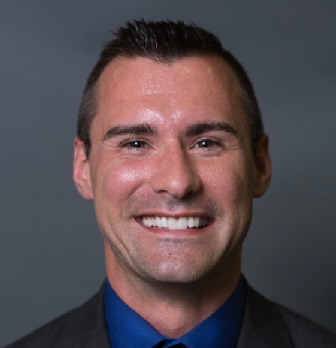Counseling Trans People through an Intersectional Lens: Challenges and Possible Solutions
Trans and gender diverse (TGD) people (with gender identities and/or expressions different from the gender associated with their sex assignment at birth) are facing increasing levels of both structural (e.g., laws prohibiting gender transition procedures and banning Drag performances) and individual (e.g., increased risk of violence) discrimination in their daily lives. High levels of daily discrimination cause significant distress.
This distress can increase in intensity when a trans person experiences discrimination based on additional marginalized identities (e.g., race, sexual orientation). TGD people with multiple marginalized identities experience unique forms of discrimination that surround both their experiences as a TGD person and their other identities.
Everyone has a matrix of intersecting identities and focusing care around just one of those identities may be somewhat helpful to the client. However, there is a pressing need to expand identity-affirming care to account for intersecting identities and experiences. Doing so is likely to increase resilience, gender euphoria, and pride in intersecting identities.
We will focus on two identity intersections: TGD Black, Indigenous, and people of color (BIPOC) and autistic TGD people. We picked these intersections because they are commonly discussed in clinical research and practice circles.
BIPOC
The intersectional challenges facing trans BIPOC people include:
- Navigating Religion
- TGD BIPOC may grow up in highly religious households, leading to a clash of identities. In church, their BIPOC identities may be supported and affirmed, but their TGD identities could put them at risk of rejection. In TGD circles, their gender identities may be supported and affirmed, but their BIPOC identities may be the focus of racism and rejection causing them to feel less connected to the queer community as a whole.
- Access to Medical Care
- High numbers of TGD people and BIPOC experience anticipatory and fear about going to medical professionals. This number is much higher for TGD BIPOC and for trans people with public insurance. The more marginalized identities a person holds, the more reasons they may have to avoid health care in an effort to protect themselves from discrimination, erasure, and misdiagnosis (Ex. Verbal Abuse, forced care, and misgendering).
When addressing these challenges, counselors can leverage client strengths and help clients to
navigate discriminatory spaces to get their needs met. Here are a couple of ways to assist
clients with TGD BIPOC identities:
- Don’t Shy Away from Religiosity or Confronting Racism
- For TGD BIPOC clients, religious history may be particularly important to discuss. Counselors may benefit from researching the specific religion a TGD BIPOC client grew up with in order to better understand the ways the client’s religious heritage impacts their TGD identity.
- Remember that Counselors Function as Health Service Providers
- Making sure the client feels safe around you should be of high priority when treating TGD BIPOC. Taking steps such as having items in your office to show your a queer ally such as pride flags or posters can help alleviate these worries for TGD BIPOC people.
- Not concentrating too much on one identity
- Many TGC BIPOC feel that LGBTQ+ spaces center around white, cisgender, young, gay men. This could lead to a TGD BIPOC client feeling that they don’t belong in these spaces, due to one or more of their identities not being represented in these spaces (Ex. A black, middle aged, trans woman). Instead of concentrating on one identity, when talking with a client, be aware that a client has multiple identities that can affect them in different ways. The clients presenting concern, may not be related to just one identity.
Autism
Autism is defined as a neurodevelopmental disorder that affects a person’s verbal, non-verbal, and social interactions. Some researchers suggest that trans people are more likely to be diagnosed with autism than cisgender people. Whether autism is more common in TGD populations is still being investigated, but because of this widely held belief on the part of providers, it is likely that counselors will work with TGD clients who have been diagnosed with autism. Challenges facing autistic TGD clients include:
- Not Being Taken Seriously
- The TGD identities of trans autistic people may not be taken seriously due to their autism diagnosis. Many TGD autistic people grow up with medical professionals diagnosing parts of their trans identity as a side effect of their Autism. This may lead to some Trans clients with Autism being wary of medical professionals.
- Comorbid Diagnoses
- Many autistic TGD people report multiple risk factors such as substance-use disorders, major depression, and suicidal ideation. Special care should be taken to ensure all of a client’s mental health needs are being met.
In light of these challenges, here are a couple of ways to assist autistic TGD people:
- Validate All Identities and Experiences Your Client Brings to the Table
- We encourage you to affirm your client as a whole person and to celebrate all of the identities and experiences that they bring into the therapy room. As a health service professional, your affirmation and encouragement can go a long way.
- Treat All Presenting Concerns as Valid and Important
- Overemphasizing one diagnosis or presenting concern may lead to erasure of others. An integrative, informed consent based, harm reduction model like the one proposed in WPATH Standards of Care 8 may serve as a helpful guide.

Angel Huerta, BA, is a Mental Health Counseling Student in the Oklahoma State University’s College of Education and Human Sciences. They work as an advocate in the Diversity and Rural Advocacy Group (www.draglaboratory.com).

Douglas Knutson, PhD, LHSP, ABPP, (he/him) is an assistant professor in the School of Community Health Sciences, Counseling and Counseling Psychology at Oklahoma State University. Dr. Knutson is board certified in counseling psychology. He serves as coordinator of the Diversity and Rural Advocacy Group (www.draglaboratory.com).
Posted on: August 15, 2023
|



